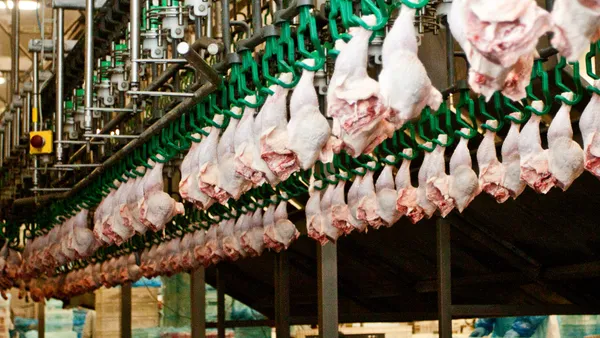Dive Brief:
-
A federal judge in Texas has temporarily blocked an Agriculture Department disaster relief program from giving preferential funding to women and minority farmers, siding with a group of plaintiffs who claim the program illegally discriminates against white, male farmers.
-
In an order filed June 7, Judge Matthew Kacsmaryk ruled the program likely violated the plaintiffs’ constitutional rights to equal protection under the law. In turn, he halted the USDA from making payments or providing additional relief to people based on its “socially disadvantaged farmer or rancher” designation until a resolution has been reached in the case.
-
The ruling follows a lawsuit from Texas farmers who claim they would have received more funding under disaster and pandemic relief programs had they been another race or gender. Critics said the ruling is a step backwards following decades of systemic racism and policies that largely benefited white farmers.
Dive Insight:
The ruling in Texas is the latest move by a court to overturn race-conscious assistance programs in the wake of a Supreme Court ruling that ended affirmative action in higher education admissions programs. In March, a Texas court ruled an agency dedicated to helping minority-owned small businesses must open its doors to all races.
The action against the USDA program is reminiscent of a ruling in June 2021 when a pair of judges blocked a separate debt relief program for minority farmers. Congress ultimately altered the programs, granting debt relief based on economic need instead of race.
In the most recent ruling, Texas Judge Kacsmaryk, appointed by former president Donald Trump, sided with plaintiffs that disaster aid programs funneled a greater share of the funds to “socially disadvantaged farmers" or people identifying as Native American, Black, Asian, Latinos, Pacific Islander, as well as women.
In court filings, the USDA justified the programs, saying they reflect the Farm Service Agency’s “interest and goal of remedying the persistent effects of past discrimination.” Citing historical legislation, these farmers had “more difficulty getting loans and credit from USDA” and were more likely to be in default compared to white, male farmers.
Instead of a flat rate for recovering disaster losses, the USDA used a “progressive factoring” model that offered payments based on a sliding percentage scale. For example, farmers who reported $2,000 in losses would receive 100% of their claim, but those with $20,000 in losses got 10%.
Underserved farmers received exemptions from the sliding percentage scale, which plaintiffs, all white men, claimed unfairly impacted the amount of aid they received. They said they would have received up to 10 times more funding if they were another race or gender.
In his opinion, Kacsmaryk said the ongoing program is likely discriminatory because the progressive factoring model hurts farmers who claim large losses, and then exempts certain races from the adverse consequences.
“Minimizing past discrimination here is not a compelling interest,” he wrote.
A USDA spokesperson did not immediately respond to a request for comment.
John Boyd Jr., a Texas farmer whose organization, the National Black Farmers Association, has sued to protect minority-preference debt relief programs, told the Washington Post that the court’s decision was “more of the same as we’re going backwards in this country.”
The vast majority of farm subsidies go to white farmers, making it hard for Black-owned farms to compete, Boyd told the Post, adding that setting aside resources to help black farmers is necessary to correct the disparity.
“You’re going to exclude people by race, but you don’t want to fix it by race,” he said.











